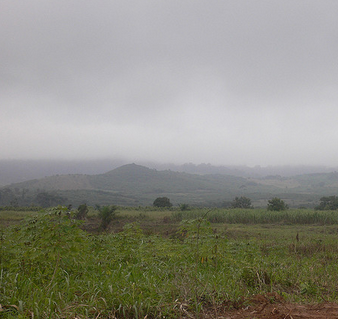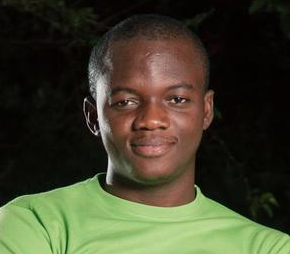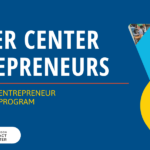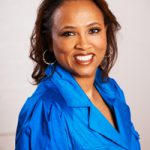This article is one in a series of guest contributions by Alloysius Attah, co-founder of Farmerline.
—–
According to legend, the ancient Olympic Games were founded by Heracles, a son of Zeus (Greek god). The first Olympic Games for which were held in 776 BCE (though it is generally believed that the Games had been going on for many years already). The ancient Olympic Games grew and continued to be played every four years for nearly 1200 years. In 393 CE, the Roman emperor Theodosius I, abolished the Games because of their pagan influences.
Approximately 1500 years later, a young Frenchmen named Pierre de Coubertin began the revival of the Olympic Games. Coubertin’s attempt to get France interested in sports was not met with enthusiasm but he believed that, the experiment to revive the Olympics Games was worth it no matter the end results. He was willing to leave his blood and sweat on the field doing it. In 1890, he organized and founded a sports organization and in two years, Coubertin first pitched his idea to revive the Olympic Games. Though Coubertin was not the first to propose the revival of the Olympic Games, he was the most “unreasonable” and persistent of them of all. Two years later, he organized a meeting 79 delegates from nine countries to arouse their interest by speaking about the revival of the Olympics Games. The delegate voted unanimously for the Olympics Games and they decided to form the first the International Olympic Committee (IOC; Comité Internationale Olympique) in 1894.
Two years later, the first Olympic Games (Athletics, Cycling, Wrestling, Shooting, Tennis, Fencing, Swimming, Gymnastics and Weightlifting) was held in Athens. The evolution of the Olympic Movement during the 20th and 21st centuries has resulted in several changes to the Olympic Games. Some of these adjustments include the creation of the Winter Games for ice and winter sports, the Paralympic Games for athletes with a disability, and the Youth Olympic Games for teenage athletes. Now when we think of the Olympics, we think about the Gold Medals, Cal Lewis, and Usain Bolt record as the fastest man in the competition. In Ghana, we usually hope and pray that our athletes come home with just any medal to make us proud.
But what really define the Olympics for me are those inspirational moments that dramatize the power and resilience of the human spirit. Pierre de Coubertin persisted despite facing many hurdles; he succeeded in reviving the Olympics Games. That’s the true power of human spirit. He is national symbol of France and he reminds us of the capacity of the human race to overcome any obstacle.
Many scientist, environmentalist, social entrepreneurs and funders in time past have made tremendous strides in revitalizing our increasingly fatigued world. One person who deserves a gold medal is Myshkin Inqwale, inventor of ToucHB. ToucHB is a portable, mobile phone-sized device to diagnose and monitor anemia non-invasively i.e. without needles. The technology works on an optical principle and gives out results instantly. He succeeded in building it after 32 attempts.
Mohamed Yunus, a Nobel Peace Prize recipient also revolutionized the finance sector by starting microfinance for the poor. The microfinance industry has grown into a multi-billion dollar industry by extending financial services to the world’s poor because sufficient data was made available to investors to discover a way to understand risk and opportunity.
During a Facebook chat with Kevin Jones, convener of SOCAP, we discussed how we (social entrepreneurs and funders) can make a more conscious effort in incorporating the interest of the planet in our solutions. He shared with me the SOCAP 2013 conference track for ocean health and long term interest of attracting investment to bio-cultural resilience and the idea of building a bio-cultural resilience tool (oh yes, it was confusing at first).

The principles from the resilience shown in reviving the Olympic Games and the possibility of collecting and translating sufficient data to revolutionize the microfinance industry can be borrowed to preserve global oceans. Our quality of life today and the sustainability of our planet for the future depend on the ocean as our largest natural resource, as a habitat for countless species, and as a source of food and livelihoods.
To get entrepreneurs to understand the nature of the opportunity in revitalizing the oceans and to get impact investors to look at the ocean as a market opportunity, we need the bio-cultural resilience tool to collect and transmit data that can easily be consumed by various stakeholders. The bio-cultural resilience tool is the “International Olympic Committee” for the ocean and its “delegates” will be the socially and environmentally focused funders and entrepreneurs. It is a platform where both environmentally and socially focused funders are linked into a better and more complete deals than either could do on their own. This tool is a ‘Big Game’ with so many moving parts like lightweight messaging tool, due diligence tool and storytelling tool.
What this means is that Farmerline is willing to explore being the messaging backbone in the bio-cultural resilience tool. It’s an opportunity to enter new markets and also scale quickly. This experiment is worth undertaking because of the diversity and experience in the team behind it, a group of young Ghanaian technology entrepreneurs and a more experienced network of American Impact Investors. Happy Birthday to myself and Kevin Jones. Let’s see how the story unfolds…
About the Author
 Alloysius Attah co-founded Farmerline, a mobile venture offering improved information access and communication pathways for smallholder farmers and agricultural stakeholders. He is passionate scaling technology to smallholder farmers across Africa. Alloysius brings to his peers, colleagues and community a sense of possibility and renewed enthusiasm. He is TEDxAccra speaker and an Echoing Green Fellowship 2013 semi-finalist. He studied Fisheries at the Kwame Nkrumah University of Science and Technology, Ghana and also has experience in using mobile and web technologies for development
Alloysius Attah co-founded Farmerline, a mobile venture offering improved information access and communication pathways for smallholder farmers and agricultural stakeholders. He is passionate scaling technology to smallholder farmers across Africa. Alloysius brings to his peers, colleagues and community a sense of possibility and renewed enthusiasm. He is TEDxAccra speaker and an Echoing Green Fellowship 2013 semi-finalist. He studied Fisheries at the Kwame Nkrumah University of Science and Technology, Ghana and also has experience in using mobile and web technologies for development




